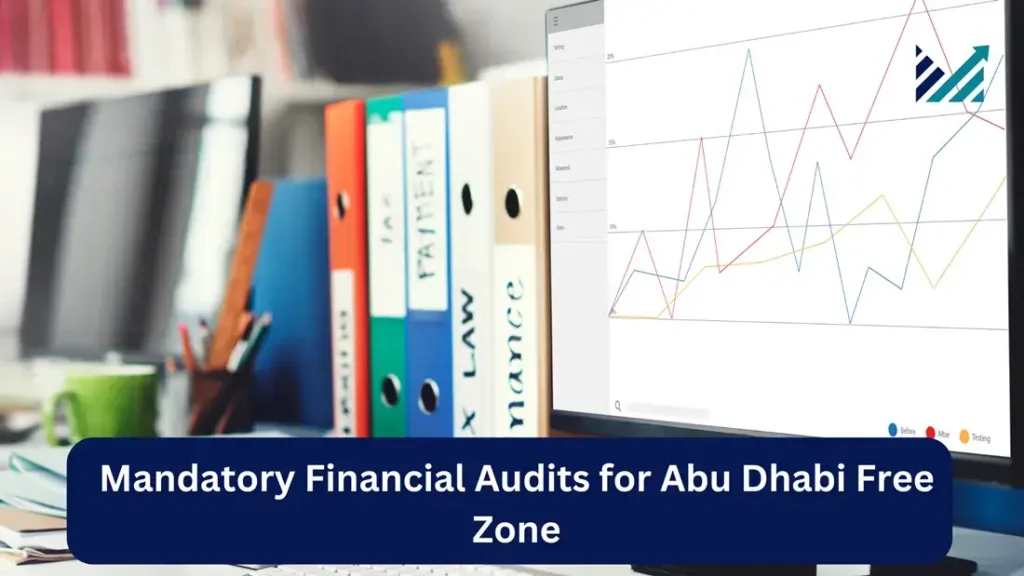
Financial audits are a crucial requirement for businesses operating in Abu Dhabi’s Free Zones. These audits ensure transparency, regulatory compliance, and financial accountability. Entrepreneurs looking to establish a business in a Free Zone often have questions about whether financial audits are mandatory, whether they need to submit books of accounts annually, and what penalties they may face for non-compliance. This article provides a comprehensive guide on the necessity of financial audits for Abu Dhabi Free Zone, their requirements, and the role of professional audit firms in ensuring compliance.
Why Financial Audits are Mandatory for Abu Dhabi Free Zone Companies
Several Free Zones in Abu Dhabi provide businesses with a strategic gateway to a growth-oriented ecosystem. However, these businesses must maintain accurate financial records and undergo mandatory audits by approved audit firms to ensure compliance with Free Zone regulations.
The primary reasons why financial audits are mandatory in Abu Dhabi Free Zones include:
Regulatory Compliance: Businesses must adhere to the financial regulations set by Free Zone authorities to maintain their trade licenses.
Financial Transparency: Audits provide an independent review of financial statements, ensuring they comply with International Financial Reporting Standards (IFRS).
Corporate Tax Compliance: Companies exceeding a certain revenue threshold must submit audited financial statements under UAE Corporate Tax Law.
License Renewal: Submission of an audited financial statement is necessary for the renewal of a Free Zone company’s trade license.
Avoidance of Penalties: Non-compliance with audit requirements can result in substantial fines and legal consequences.
Abu Dhabi Free Zone Audit Requirements
Each Free Zone in Abu Dhabi has distinct regulatory requirements for financial audits. The key audit requirements include:
Threshold for Audit Requirement: Companies that exceed a specific size or revenue threshold must undergo a mandatory audit.
Annual Financial Audit: Businesses must submit their audited financial statements within 90 to 120 days after the end of the financial year.
Trade License Renewal: A company’s trade license will not be renewed unless it submits its audited financial statements.
Financial Year Selection: Free Zone companies can choose their financial year upon incorporation, with a duration ranging from a minimum of six months to a maximum of 18 months.
Also Read: Audit Requirements in UAE
Approved Free Zone Auditors in Abu Dhabi
Businesses in Abu Dhabi Free Zones must work with approved auditors to ensure compliance. Some of the key Free Zones where registered auditors are required include:
- Khalifa Industrial Zone Abu Dhabi (KIZAD)
- Masdar City Free Zone
- Abu Dhabi Airport Free Zone (ADAFZ)
- Twofour54 Abu Dhabi
- Dubai Multi Commodities Centre (DMCC)
- Jebel Ali Free Zone (JAFZA)
- Dubai Airport Free Zone (DAFZA)
- Sharjah Airport International Free Zone (SAIF Zone)
- Ras Al Khaimah Economic Zone (RAKEZ)
Approved auditors in these Free Zones provide timely financial audits and ensure 100% compliance with UAE Free Zone regulations.
Consequences of Non-Compliance
Failure to comply with Free Zone audit requirements can result in severe penalties, including:
Financial Penalties: Companies may face fines of AED 5,000 per month for non-submission of audited financial statements.
License Suspension or Cancellation: Persistent non-compliance may result in the suspension or cancellation of the company’s trade license.
Legal and Financial Risks: Businesses may face legal action, leading to reputational damage and financial instability.
The Importance of Hiring an Audit Firm in Abu Dhabi
Given the complexity of Free Zone audit requirements, hiring a professional audit firm in Abu Dhabi is crucial. Here’s how an audit firm can help:
Ensuring Compliance: A registered audit firm ensures that businesses meet all Free Zone financial regulations and avoid penalties.
Accurate Financial Reporting: Professional auditors review financial statements for accuracy and compliance with IFRS standards.
Corporate Tax Guidance: Audit firms help businesses understand corporate tax obligations and provide guidance on tax-saving strategies.
Trade License Renewal Support: An audit firm assists businesses in submitting required documents for seamless trade license renewal.
Risk Management: Professional auditors identify financial risks and suggest corrective actions to improve financial health.
Conclusion
Mandatory financial audits are essential for businesses operating in Abu Dhabi Free Zones. They ensure compliance, transparency, and financial accountability. Working with a reputable audit firm helps businesses navigate complex regulations, avoid penalties, and maintain a strong financial standing. Entrepreneurs looking to establish a Free Zone company in Abu Dhabi should prioritize financial audits as an integral part of their business operations to ensure long-term success.

